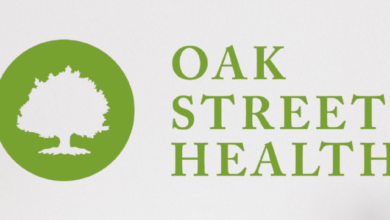Health Insurance: A Comprehensive Guide to Safeguarding Your Health and Finances

Health insurance is more than just a policy; it’s a safety net that ensures you can access quality healthcare without worrying about exorbitant costs. Understanding the nuances of health insurance can empower you to make informed decisions for yourself and your family. In this article, we’ll dive deep into what health insurance is, why it matters, and how you can choose the best plan for your needs.
What Is Health Insurance and Why Is It Important?
Health insurance is a contract between you and an insurance provider that covers medical expenses arising from illnesses, injuries, or routine care. But why is it so crucial?
The Rising Cost of Healthcare
Healthcare costs have skyrocketed in recent years. A single hospital visit or surgical procedure can lead to thousands of dollars in bills. Health insurance ensures that you’re not burdened by these costs, offering financial protection when you need it most.
Access to Quality Care

Having health insurance often means access to a broader network of healthcare providers. Insurance companies negotiate lower rates with hospitals and doctors, giving insured individuals the advantage of quality care at a reduced cost.
Preventive Care Coverage
Many health insurance plans include coverage for preventive services such as vaccinations, screenings, and wellness checks. Early detection of illnesses can save lives and reduce treatment costs, making preventive care a critical aspect of health insurance.
Different Types of Health Insurance Plans
Choosing the right health insurance plan can be overwhelming, given the variety of options available. Here’s a breakdown of the most common types:
1. Health Maintenance Organization (HMO)
HMO plans require you to choose a primary care physician (PCP) and get referrals for specialist visits. They’re often more affordable but have a limited network of providers.
- Pros: Lower premiums and out-of-pocket costs.
- Cons: Limited flexibility in choosing healthcare providers.
2. Preferred Provider Organization (PPO)
PPO plans offer more flexibility, allowing you to see any doctor or specialist without referrals. However, staying within the network saves you more money.
- Pros: Greater freedom to choose providers.
- Cons: Higher premiums and deductibles compared to HMOs.
3. High-Deductible Health Plans (HDHPs)
HDHPs come with lower premiums but higher deductibles, making them suitable for healthy individuals who don’t expect frequent medical visits. Often paired with Health Savings Accounts (HSAs), these plans encourage savings for medical expenses.
- Pros: Lower monthly premiums and HSA compatibility.
- Cons: Higher out-of-pocket costs until the deductible is met.
How to Choose the Right Health Insurance Plan
Selecting the best health insurance plan requires careful consideration of your needs and financial situation. Here’s how to approach the process:
Assess Your Healthcare Needs
Start by evaluating your health history, current medical conditions, and any anticipated treatments. Do you visit specialists frequently? Do you require prescription medication? These factors can influence your choice.
Understand Key Insurance Terms
Familiarize yourself with terms like premiums, deductibles, co-pays, and out-of-pocket maximums. Knowing these will help you compare plans effectively.
- Premium: The monthly payment for your insurance.
- Deductible: The amount you pay before insurance kicks in.
- Co-pay: A fixed fee for medical services.
- Out-of-pocket maximum: The maximum amount you’ll pay annually before the insurer covers 100% of costs.
Check the Provider Network
Ensure your preferred doctors, specialists, and hospitals are included in the plan’s network. Out-of-network care is often significantly more expensive.
Review the Plan’s Coverage
Not all health insurance plans cover the same services. Look for coverage for essential benefits like mental health, maternity care, and chronic disease management.
The Role of Government and Employer-Sponsored Plans
Government programs and employer-sponsored plans provide alternative avenues for securing health insurance. Let’s explore these options:
Medicare and Medicaid
Medicare is a federal program for individuals aged 65 and older or those with specific disabilities. Medicaid, on the other hand, is a state and federal program for low-income individuals and families.
- Medicare Pros: Comprehensive coverage for seniors.
- Medicaid Pros: Free or low-cost coverage for eligible individuals.
Employer-Sponsored Plans
Many employers offer group health insurance plans, often at a lower cost than individual policies. These plans are typically more comprehensive and provide options for adding family members.
- Pros: Shared premium costs with the employer.
- Cons: Limited to what the employer offers.
Common Misconceptions About Health Insurance
Despite its importance, health insurance is often misunderstood. Here are some myths debunked:
“Young and Healthy People Don’t Need Insurance”
Accidents and unexpected illnesses can happen to anyone. Health insurance provides a safety net even for those who rarely visit the doctor.
“All Plans Cover Everything”
Each plan has limitations and exclusions. Reading the fine print is essential to avoid surprises.
“Insurance Is Too Expensive”
While premiums can be high, government subsidies, employer contributions, and marketplace options make insurance more accessible than many realize.
The Future of Health Insurance
The healthcare landscape is continuously evolving, with new technologies and policies shaping the future of health insurance.
Telemedicine and Digital Health
Many insurers now cover telemedicine visits, making healthcare more accessible, especially in remote areas. This trend is likely to grow, offering convenience and cost savings.
Value-Based Care
Insurers are shifting toward value-based care models, focusing on patient outcomes rather than the volume of services provided. This approach could lead to better care at lower costs.
Personalized Plans
Advancements in data analytics allow insurers to offer tailored plans based on an individual’s specific health needs, ensuring more precise and cost-effective coverage.
Conclusion: Why Health Insurance Is Non-Negotiable
Health insurance is more than just a policy—it’s a critical investment in your health and financial stability. By understanding the various types of plans, evaluating your needs, and staying informed about changes in the industry, you can make empowered decisions that benefit you and your loved ones.
Don’t wait for a medical emergency to realize the importance of coverage. Whether you’re young and healthy or managing chronic conditions, health insurance provides peace of mind, financial security, and access to quality care. Start exploring your options today and secure a healthier, worry-free tomorrow.



